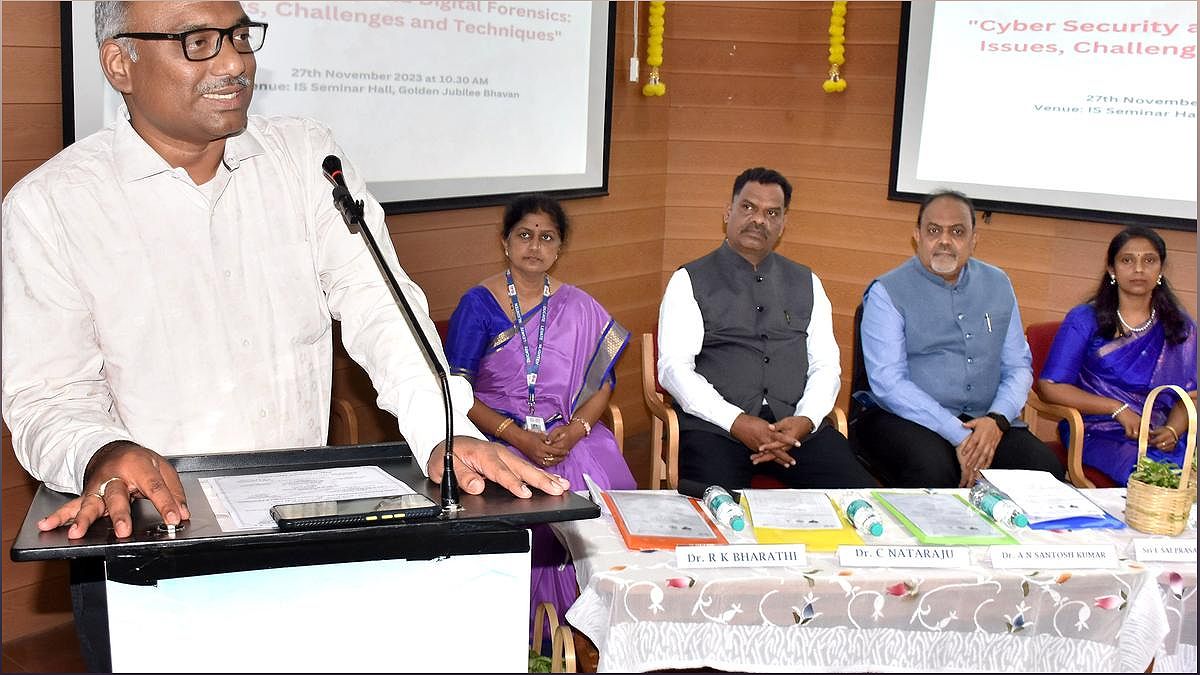In today's digital age, ensuring the security of our virtual and digital ecosystem is of utmost importance. India recognizes this need and is actively working towards developing a robust cybersecurity framework. This article explores the challenges faced in this field and the initiatives taken by India to address them. Join me as we delve into the world of cybersecurity and discover how India is shaping a safer digital future.
The Need for a Cybersecurity Framework
Understanding the importance of a cybersecurity framework in today's digital landscape.
In an increasingly interconnected world, the need for a robust cybersecurity framework cannot be overstated. With the rapid advancement of technology, cyber threats have become more sophisticated and prevalent, posing a significant risk to individuals, organizations, and even nations. A cybersecurity framework provides a structured approach to identify, protect, detect, respond to, and recover from cyber incidents.
By implementing a comprehensive cybersecurity framework, countries like India can safeguard their digital infrastructure, protect sensitive information, and ensure the privacy and security of their citizens. Let's explore the key aspects of India's cybersecurity framework and the measures taken to create a safer digital ecosystem.
Challenges in Cybersecurity
Examining the administrative, legal, human resource, and technical challenges in the field of cybersecurity.
The field of cybersecurity presents numerous challenges that need to be addressed effectively. These challenges span across various domains, including administrative, legal, human resource, and technical aspects.
Administrative Challenges
One of the primary administrative challenges is the formulation of effective policies and regulations that can keep pace with rapidly evolving cyber threats. It requires collaboration between government agencies, industry experts, and academia to create a comprehensive framework that addresses the dynamic nature of cyber risks.
Legal Challenges
The legal landscape surrounding cybersecurity is complex and constantly evolving. The absence of robust legislation and cybercrime laws can hinder the prosecution of cybercriminals and the enforcement of cybersecurity measures. It is crucial to establish clear legal frameworks that empower law enforcement agencies to combat cyber threats effectively.
Human Resource Challenges
Despite the increasing demand for cybersecurity professionals, there is a significant shortage of skilled manpower in this field. Educational institutions produce a large number of trained individuals each year, but there is still a gap that needs to be bridged. Initiatives like workshops and training programs play a vital role in equipping individuals with the necessary skills and knowledge to tackle cyber threats.
Technical Challenges
The ever-evolving nature of cyber threats necessitates continuous technological advancements. Cybersecurity professionals need to stay updated with the latest tools, techniques, and best practices to counter emerging threats effectively. Research and development in areas such as encryption, network security, and threat intelligence are crucial to staying ahead in the cybersecurity landscape.
India's Cybersecurity Initiatives
Exploring the key initiatives taken by India to strengthen its cybersecurity landscape.
Recognizing the importance of cybersecurity, India has been actively working towards strengthening its cybersecurity landscape. The country has established key initiatives and organizations dedicated to combating cyber threats and creating a safer digital ecosystem.
Indian Cyber Crime Coordination Centre (I4C)
The Indian Cyber Crime Coordination Centre is a nodal agency that coordinates efforts to combat cybercrime. It facilitates real-time information sharing, analysis, and coordination among various law enforcement agencies to enhance their capabilities in dealing with cyber threats.
Centre for Prevention of Cybercrime Against Women and Children (CPCAWC)
India has also established the Centre for Prevention of Cybercrime Against Women and Children, which focuses on addressing cybercrimes specifically targeting women and children. The center works towards creating awareness, providing support to victims, and ensuring the swift investigation and prosecution of offenders.
These initiatives, along with various policy formulations, aim to create a secure digital environment for individuals, businesses, and the government. By fostering collaboration between stakeholders, India is taking significant steps towards mitigating cyber risks and building a resilient cybersecurity framework.
Addressing the Skill Gap
Highlighting the need for skilled professionals in the field of cybersecurity and the role of workshops in bridging the skill gap.
Despite the growing importance of cybersecurity, there is a significant skill gap in the field. Educational institutions produce a considerable number of trained individuals, but there is still a shortage of skilled professionals who can effectively tackle cyber threats.
Workshops and training programs play a crucial role in bridging this skill gap. They provide individuals with the opportunity to enhance their knowledge, learn the latest techniques, and gain hands-on experience in cybersecurity and digital forensics.
The week-long workshop on Cyber Security and Digital Forensics at JSS Science and Technology University in Mysuru is one such initiative. It brings together experts from multinational companies, experienced police officers, and participants to delve into the challenges and techniques of cybersecurity. By sharing insights, best practices, and industry perspectives, workshops like these contribute to building a skilled workforce in the field of cybersecurity.
Exploring the Future of Cybersecurity
Unveiling the potential of research and industrial collaborations in shaping the future of cybersecurity.
The field of cybersecurity is ever-evolving, and it is essential to stay ahead of emerging threats. Research and industrial collaborations play a crucial role in shaping the future of cybersecurity.
The workshop at JSS Science and Technology University aims to explore the past, present, and future scope of research in India and other parts of the world. Participants will have the opportunity to gain insights into state-of-the-art research, industry perspectives, and ongoing cybersecurity projects.
By fostering collaborations between academia, industry, and government, we can drive innovation, develop advanced technologies, and strengthen our defense against cyber threats. Together, we can build a secure and resilient digital ecosystem for the future.

